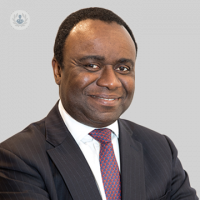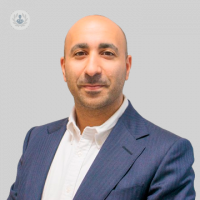What is orthopaedic surgery?
Orthopaedic surgery is a specialty concerned with musculoskeletal problems. These may be injuries, congenital or acquired disorders, arthritis or conditions of the bones, muscles, joints, ligaments and associated nerves. Therefore, a
bone specialist is called an
orthopaedic surgeon.
What does an orthopaedic surgeon do?
An
orthopaedic consultant, who might also be called either an
orthopaedic doctor or informally as a
bone doctor, will have a wide range of skills relating to musculoskeletal conditions and injuries. The main procedures that an orthopaedic surgeon will do include:
- Bone fracture repairs (which may use pins and plates to ensure that fractured bones are set correctly for healing)
- Joint arthroscopy (a minimally-invasive technique used to either diagnose or repair joint problems)
- Arthroplasty (surgical replacement of joints, such as knee replacement surgery)
- Repair and reconstructive surgery (to repair injured or damaged muscles and tendons)
- Corrective surgery (to restore function and mobility to poorly aligned musculoskeletal anatomy)
How do you become an orthopaedic surgeon?
According to the
British Orthopaedic Association, to become an orthopaedic surgeon you will have completed your undergraduate medical degree, followed by a two year period of foundation training. Next, you will embark on two years of core training at which point the training doctor should establish a clear future medical career based on their experience already gained. For those interested in surgery, it is essential to have a surgical specialty in mind. If you are interested in
orthopaedic surgery you will be invited to apply for the next stage of specialty training through a national selection process. If successful, you will be allocated a national training programme number and join a regional training rotation as a specialty trainee (although you will often be referred to as a registrar). Becoming an orthopaedic surgeon will take 4-6 years from this point.
What does an orthopaedic surgeon treat?
Problems that are treated by orthopaedic surgeons include:
- Arthritis
- Sports injuries (often these will be treated by orthopaedic surgeons who have gained sub-specialty training in sports medicine)
- Back pain
- Wrist injuries (of the carpal ligaments, such as the scapholunate ligament)
- Knee pain (this can sometimes be treated non-surgically with joint injections)
- Achilles tendon injuries
- Bunions
- Osteoporosis
- Bone tumours
- Orthopaedic trauma (e.g. fractures and damaged ligaments and tendons)
When should I see an orthopaedic surgeon?
You should see an orthopaedic surgeon in the following instances:
- Joint pain following an accident
- Having obviously broken or damaged bones
- Worsening hip or knee pain
- Mobility being limited because of joint pain
- A prior joint replacement causing pain
- Joint swelling
- Instability of joints when standing or walking
- Any clear bone deformities
How can I make an appointment with an orthopaedic surgeon?
There are several ways in which an appointment can be made with an orthopaedic surgeon. You can visit your GP and get a referral. Alternatively, you can make an appointment with the orthopaedic surgeon of your choice through Top Doctors. Whilst most hospitals will have several consultant orthopaedic surgeons, certain hospitals are dedicated orthopaedic centres, such as the
Nuffield Orthopaedic Centre in Oxford and the
Royal Orthopaedic Hospital in
Birmingham. If you are based in or near
London, many orthopaedic surgeons work across the major hospitals and on
Harley Street.























